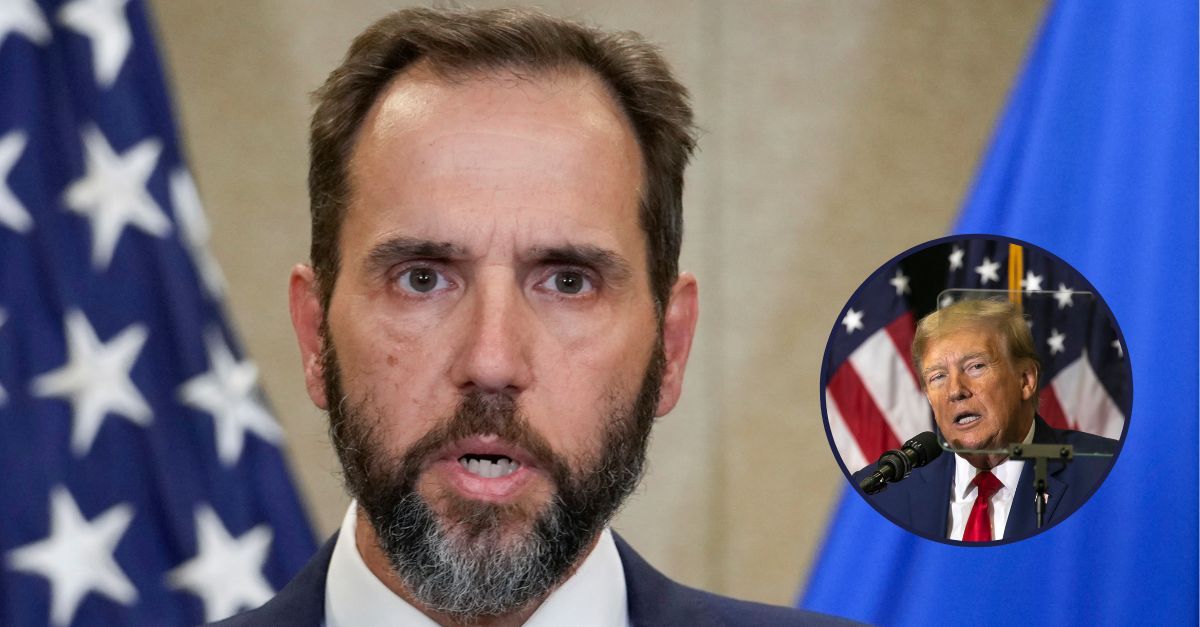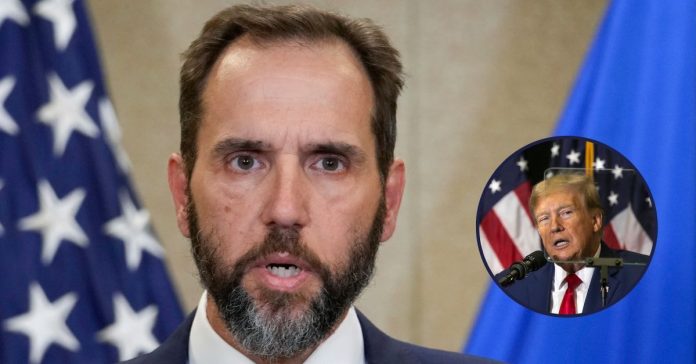
Background: Special couunsel Jack Smith. (AP Photo/J. Scott Applewhite, File) Inset: Republican presidential candidate and former President Donald Trump speaks to the crowd during a caucus event, Saturday, Dec. 2, 2023, at Kirkwood Community College in Cedar Rapids, Iowa. (Geoff Stellfox/The Gazette via AP)
The Special Counsel’s Office, none too pleased that Donald Trump’s defense attorneys continue to push for “naming all witnesses” in the Mar-a-Lago case, asserted Wednesday that the “defendants are unable to show concern or sympathy” for those who may be threatened or harassed once identified.
Special counsel Jack Smith asked U.S. District Judge Aileen Cannon to sign off on the “redaction and/or sealing of certain information” in defense filings and exhibits. If the judge does not, Smith said, that “would reveal the identities of potential witnesses and key portions of the testimony they would provide” — and potentially place those witnesses in danger.
Trump lawyers are well aware of the climate of threats and harassment, but they aren’t changing their position on “naming all witnesses,” the filing said.
“As noted above, the Government has detailed elsewhere the types of threats and harassment individuals linked to this case have faced. Despite knowing this, the defendants insist on naming all witnesses and appear to have no concerns about whether any of these individuals will be put at risk,” Smith wrote. “While the defendants take no responsibility for the safety and security of witnesses, the Government and the Court are obligated to do so.”
The special counsel then highlighted what he viewed as the “most egregious instance of exposing witnesses to potential harm,” pointing to Trump’s motion to dismiss the case on grounds of prosecutorial misconduct.
The “egregious instance,” Smith said, was a “baseless” Trump conspiracy theory about the National Archives and the genesis of his prosecution for the alleged willful retention of classified national defense information at Mar-a-Lago and alleged conspiracy to obstruct a grand jury probe of those documents’ whereabouts.
“There, Trump makes the totally unfounded and false claim that, beginning on President Biden’s inauguration day, the former Archivist and a longtime career civil servant (and potential Government witness) began ‘to conspire’ to ensure a criminal investigation into Trump’s missing records ensued,” the motion continued. “Naming this witness on the public docket in connection with Trump’s baseless allegations would recklessly expose the witness to harm, and for no reason.”
But Smith’s issues with the Trump, his attorneys, and Trump co-defendant/valet Walt Nauta didn’t end there.
“Even where the Court previously has used anonymizations to refer to potential Government witnesses, the defense insists on outing them here,” he wrote — despite those witnesses “at best” having an “ancillary relationship with the case,” such as the names of record custodians who “performed their duties for entities that happened to have records the Government sought via subpoena.”
“But the defendants are unable to show concern or sympathy for someone who truly is a mere bystander,” Smith concluded.
Read the motion here.
Have a tip we should know? [email protected]

